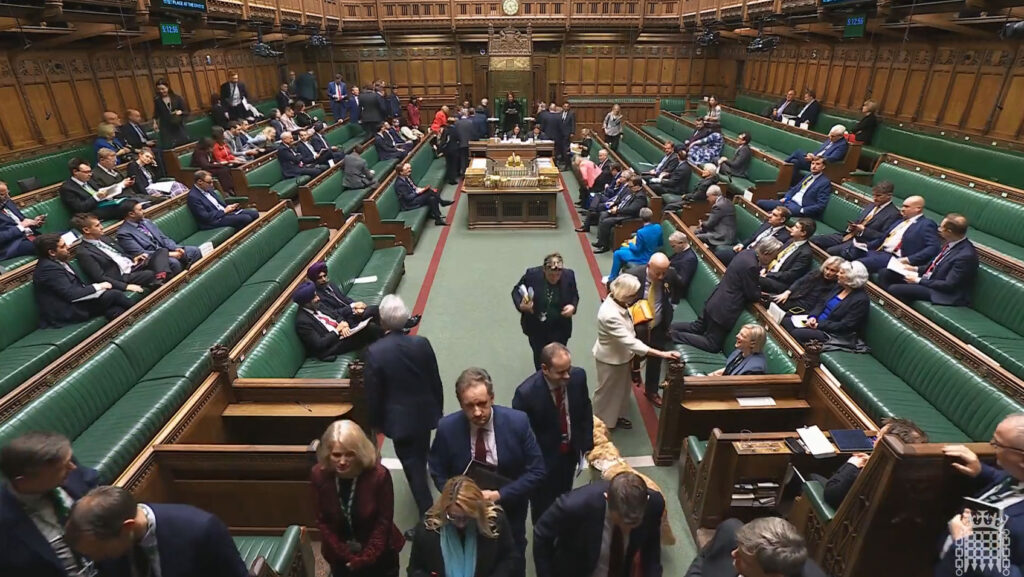Labour MPs squash opposition to ‘family farm tax’ plans
 © Parliament TV
© Parliament TV Tory attempts to overturn the so-called “family farm tax” with a vote in parliament ended in defeat on Wednesday 4 December as Labour used its sizeable majority to see off the motion.
The controversial government plans to introduce a 20% inheritance tax (IHT) change on agricultural assets worth over £1m from April 2026 were the subject of a four-hour Opposition debate, led by shadow Defra secretary Victoria Atkins.
See also: Town hall rebellion grows against ‘family farm tax’
In her opening address, she criticised the government for going back on promises made before the general election not to target agricultural property relief (APR), saying the new tax would “punish” farmers with bills of hundreds of thousands, or even millions of pounds.
She also criticised the figures being used by the Treasury, which she said greatly underestimated the numbers who will be caught by IHT in the future, and slammed the government for not carrying out any impact assessment.
“This government has driven farmers to despair,” said Ms Atkins.
“The hike in national insurance, the acceleration of delinked payments, the fertiliser tax, the double cab tax, the stalling of capital grants, the scrapping of the Rural Services Delivery Grant, and the slowing down of applications to farming schemes are all conspiring against our rural economy and the survival of British farms.”
Penrith Labour MP @MCSavours says he cannot vote with the government on the #familyfarmtax because farmers were previously assured it would not happen. The many farmers and associated rural businesses in his constituency will be grateful for his courageous & principled stance. pic.twitter.com/VRpbK78hQz
— NFU Political (@NFUPolitical) December 4, 2024
Demands
Numerous other Conservative, Liberal Democrat and independent MPs weighed into the debate, making similar points and demanding that Labour MPs, especially from rural constituencies, vote with their conscience rather than their party.
Liberal Democrat MP and chair of the Environment, Food and Rural Affairs committee Alistair Carmichael questioned the ability of cash-strapped farmers to be able to afford IHT.
He pointed to a possible “clawback” system, by which the tax would only be liable if property was sold on after being inherited.
“The idea that is being mooted of a ‘clawback’ or a suspended inheritance tax liability which would crystallise only at the point of the land sale after the death of the owner, would both work to keep land in active food production,” he said.
Government line
But responding for the government, Defra farming minister Daniel Zeichner stuck firmly to the government’s position, insisting that the reforms to APR “are just one of the tough decisions that the government had to take… to plug that £22bn black hole that we inherited from the Conservatives”.
“The reforms will not be introduced until April 2026, so there is plenty of time for people to plan for change and to get, as they always should when running major businesses, professional advice about succession planning,” he suggested.
On completion of the debate, some 181 MPs voted in favour of the motion, but 339 voted against, including 329 Labour MPs.
Praise
During the debate, Labour MP for Penrith and Solway, Markus Campbell-Savours won praise from the farming unions for speaking out against his party’s IHT plans.
“If today was the real vote, I would vote against the government’s plans,” he said. “During the election, I read what I thought were assurances from my party that we had no plans to introduce changes to APR.
“On this basis, I reassured farmers in my constituency that we would not. Now, I am simply not prepared to break my word.”
Despite this, Mr Campbell-Savours then went on to vote with the government, opposing the Conservative motion and backing the introduction of IHT on farm assets.
